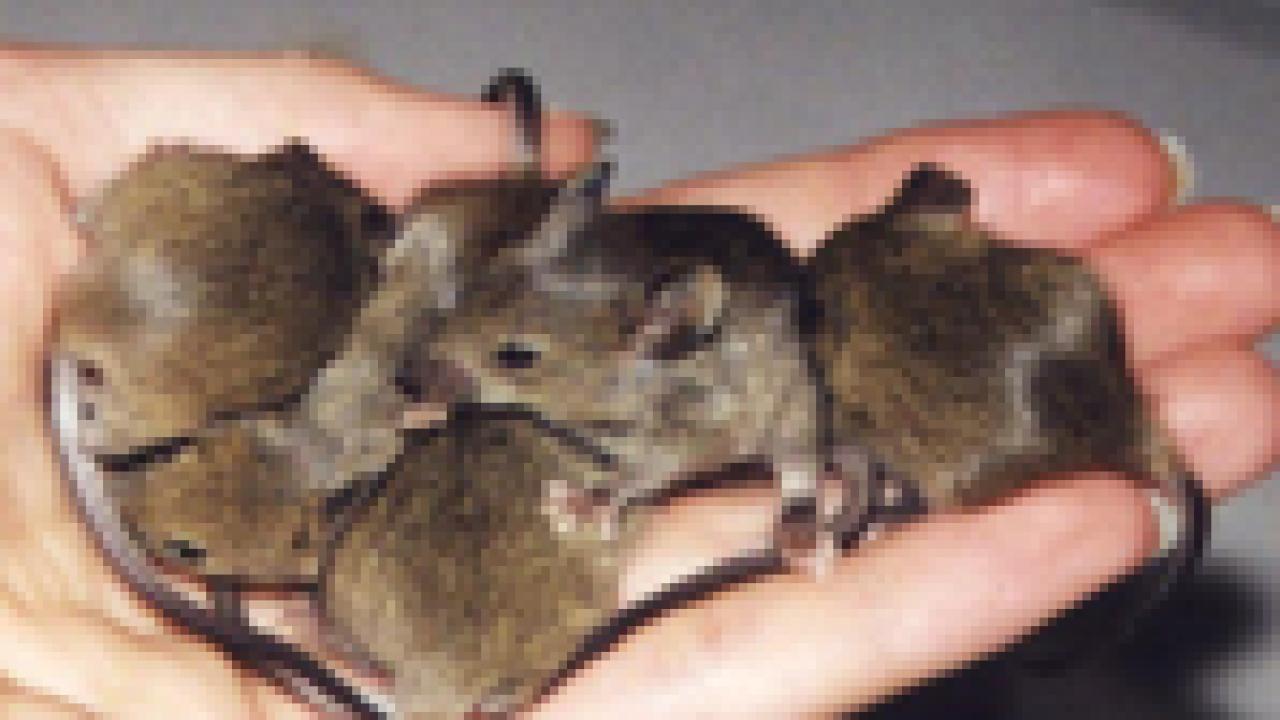UC Davis will play a key role in a new worldwide effort to create a "knockout" mutant mouse for each of the approximately 20,000 genes in the mouse genome. These mice can be used to study the function of specific genes and to create models of human disease, ranging from growth and development to cancer, obesity, diabetes and heart disease.
The work is being funded through a five-year cooperative agreement, worth approximately $23 million, awarded by the National Institutes of Health to a consortium comprising UC Davis, the Children's Hospital Oakland Research Institute and the Wellcome Trust Sanger Institute, England.
The group plans to create lines of embryonic mouse stem cells in which 5,000 individual genes will be systematically turned off, or "knocked out." Those cells will then be used to breed live mice that lack those genes.
"This award places UC Davis and its School of Veterinary Medicine front and center as a resource for genetically altered mice," Dean Bennie Osburn said. "Our understanding of animal and human disease will progress more quickly as these essential mouse models become more available to scientists."
The UC Davis Mouse Biology Program was established in 1997 to support and expand research by campus scientists using genetically altered mice. The program is already the largest of the major sites in the NIH-funded Mutant Mouse Regional Resource Centers network, in which researchers can deposit gene-modified mice that they have created and request specific mice for noncommercial research purposes.
Scientists have been making knockout mice since 1988, but so far these cover only about 5,000 genes, or about 25 percent of the mouse genome, said Kent Lloyd, a principal investigator on the grant and associate dean for research at the School of Veterinary Medicine.
"The technology is now here to do this on a high-throughput basis," Lloyd said. "Within five years, through this and related projects around the world, scientists will have access to knockouts of the whole mouse genome."
Ten thousand genes that are most closely shared between mice and humans are a high priority for the NIH. Studying how those genes work in mice can give insights into human health and disease.
Scientists at the Children's Hospital Oakland Research Institute will make the altered DNA for the mice, researchers at the Sanger Institute will insert that DNA into mouse embryonic stem cells, and UC Davis scientists will use those cells to breed the mice and check that the correct genes are knocked out.
Media Resources
Dave Jones, Dateline, 530-752-6556, dljones@ucdavis.edu
